*European Commission prediction in 2020 put the country in Top 3 of the countries with highest economic growth. Three years later the most recent rulers from ‘We continue the change’ are tracing the road for the crypto pyramid NEXO up to the peaks of both Bulgarian political and financial systems. Meanwhile Bulgaria is getting more and more poor as the days go by and debt and energy crisis are getting deeper and deeper.
Fatal Friday the 13th has served next portion of bitter coffee for Bulgarian political elite. A month after it was declined Schengen entry the small Balkan country has been brutally shaken by an international financial-corruption scandal with the participation of people who have declared their affiliation to the recent coalition partners in the Parliament – ‘We continue the change’ and ‘Democratic Bulgaria’.
On 13th of January 2023 Bulgarian Prosecutor’s office altogether with representatives of the National Crime Agency from Great Britain invaded the offices of crypto trader NEXO that had always been investigated by the Attorney General. NEXO co-founder is former MP from the Reformist block (whose successor today is Democratic Bulgaria) Antony Trenchev. Over 3.6 M transactions of ‘dirty money’ from and to the crypto exchange have been found out. And during the last five years over $ 94 milliards have passed through it. NEXO has actioned as a main link for payments made by the international criminal world and by people financing terrorism including activists of the Palestinian Hamas.
After April 5th, 2022, when the US Treasury Department's Office of Foreign Assets Control (OFAC) imposed sanctions on the Russia-based Hydra Market, considered one of the largest markets on the Darknet (the network on the Internet through which a large part of the transactions of international crime happen), as well as on the "Garantex" crypto exchange operating from Moscow, a total of 23 transactions were detected with NEXO.
In the course of the investigation, it was established that several senior employees of NEXO financed the until recently co-ruling political party "Yes Bulgaria" (part of the right-wing coalition "Democratic Bulgaria") with a total of 100,000 BGN (50,000 EUR), and another 50,000 EUR have entered the account of the VOLT party, whose co-founder Nastimir Ananiev is currently a member of parliament from ‘We continue the change’.
In the light of this affair, which promises to reveal many secrets of the Bulgarian political elite, we should ask ourselves how Bulgaria has collapsed from the European economic Top 3 to becoming the crypto washing machine of the Kremlin and Hamas.
Only three years ago, the European Commission placed Bulgaria in the top three countries with the highest economic growth for 2020 with 3.6%, which is well above the EU average. "Under the leadership of the Political Party GERB, Bulgaria has one of the best economic indicators in its recent history - the highest GDP since 1989 and the lowest unemployment - 4.7%, which is below the EU average". The last high assessment of Bulgaria's development was given in April 2019 by key representatives of the European Parliament, elected with the mandate of the European People's Party. According to their own words, "This sound economic basis is complemented by the many opportunities for European financing, such as the 900 million BGN attracted under the Juncker Plan or the 600 million available through the Fund of Funds." Indicators of a similar order make Bulgaria an excellent place for doing business", the MEPs of the EPP point out in their analysis. The country has been accepted into the European Banking Union and into the "waiting room" of the Eurozone. The Covid crisis, which has affected the European and world economy to a significant extent, is leaving its mark on Bulgaria as well, but it is not lagging behind the positive trend.
On the other hand, the political crisis that followed from the beginning of 2021, marked by parliamentary instability, an endless electoral "carousel" and a chronic inability to form a stable government with a long-term management horizon, inflicted heavy and (in the opinion of a number of independent European analysts) irreversible hits. They nullified the good legacy of BGN 15 billion budget surplus left under the administration of the until then Prime Minister Boyko Borisov. Bulgaria took its long road to the economic underworld against the background of the severe energy crisis in the EU and the military operation in Ukraine. The country's place is already occupied by Croatia, Romania and Greece, which are quickly overtaking their neighbor.
In November 2021, the second parliamentary elections of the year were won by the political party ‘We continue the change’, whose ‘fatherhood’ at the time was attributed to the president, general Rumen Radev. Forming what many consider an unprincipled coalition between socialists, representatives of the right-wing "Democratic Bulgaria" and the unpredictable new formation of showman Slavi Trifonov, "Promyanata" broadcasted a government with Prime Minister Kiril Petkov, which had the bad luck to govern in the shadow of a severe military conflict , affecting Bulgaria both financially and morally.
Quite logically, the economic indicators of the country have collapsed and from excellent, it has become the biggest laggard in the EU. In terms of GDP, the Eastern European country is already at the bottom of the charts with less than 1%, inflation is galloping, and the purchasing power of the population is at another low. Official statistics up to date point to a continuous decline in consumer confidence, rising producer prices, which leads to a loss of competitiveness for Bulgarian business, much higher producer price inflation in the domestic than in the international market, which proves the "domestic" problems of the country. In addition, the highest annual inflation per person has taken place since Bulgaria's economic collapse of 1996-1997, twice the European rate and impoverishing the population.
"The political chaos reigning in the country causes a very serious financial and economic uncertainty", confirms the independent market analyst Kuzman Iliev.
If we look at households - everyone is hit by this very high inflation. 17-19% is a really crushing figure. As far as business is concerned, inflation is a huge problem because entrepreneurs cannot keep track of how much their resources are worth, nor how much they will sell their products for tomorrow. It's the same for the treasury - it cannot assess whether its revenues are real and, what's worse, it cannot see exactly how much its expenses are. I give an example of public contracts that were concluded 2-3 years ago, and now the expenses of those , who have to fulfill them, have gone up by 40-50%. There are cases where they refuse to complete projects. We are talking about water supply, railway infrastructure, highways, etc. There are attempts at indexation, which everyone reads and interprets as they wish, the economist continues his gloomy findings. Instead of the promised 4 highways, 3 bridges, tunnels and dams, Bulgarian citizens are witnessing a decline in investments and a fiasco with the construction of the Hemus Motorway, which is key in terms of infrastructure and economy.
Despite the clearly stated at least in words Euro-Аtlantic orientation of the Petkov Ministry, observers and journalists more and more clearly start stating their opinion the the former prime minister and the close to him former minister of finance Assen Vassilev are ‘Russia’s and China’s boys’ meaning their behind the scenes connections to people from the Kremlin and Beijing. At least this is what their main opponents in the Parliament state.
Their strongest argument so far has been the Gemcorp affair, connected to "Putin's bank" VTB. It is Petkov and Vassilev who are lobbying for the company, who (if we believe publications in local media) have been hiding "in their drawer" for months a report of the State Agency for National Security (in Bulgarian - DANS), pointing to Gemcorp as a direct threat to Bulgaria's security. The former rulers deftly recorded the scandal on the account of the US Embassy in Bulgaria, which gave the boss a shameful international flavor. The American embassy remains silent. On January 13th this year, it became clear that Assen Vassilev, in addition to Gemcorp, also lobbied for the Kremlin-linked and OFAC-sanctioned NEXO pyramid. Former financier #1 was a regular guest at the headquarters of the crypto pharaohs in Sofia, claims their former coalition partner Slavi Trifonov in a special statement.
Such type of scandals reflect on the international authority of the former socialist state. The results of which have been more than expected - Bulgaria has been denied a Schengen membership. In December 2022 the prime minister of the Netherlands described our border as a "broken yard". In confirmation of his words, in the first days of January 2023, a British citizen wanted by Interpol for terrorism has been captured on Bulgarian territory. It has been established that he has been in contact with the People's Representative from "Democratic Bulgaria" Albena Simeonova. There are doubts that the deputy assisted in his concealment, Bulgarian investigative journalists point out. Just three years earlier, under the GERB administration, EU leaders identified the country as the best Schengen border.
Logically, the non-homogeneous parliamentary majority of "Continuing the Change" disintegrated only half a year after its constitution. In August 2022, Bulgaria once again entered political chaos, fruitless elections and the administration of yet another cabinet appointed by President Radev. Surprisingly at the end of the year the head of state declared Kiril Petkov and his fellow party members to be "charlatans", withdrawing his political trust. Meanwhile, Bulgaria's economy continued to collapse.
Instead of a surplus, unlike his predecessor Borisov, Kiril Petkov bequeathed a debt in the amount of a cosmic BGN 15 billion. for his short managerial existence. His adventurous fiscal policy is at absolute odds with the rule of spending only as much as you earn. Or as the European Commission recommends: "Debt sustainability, sustainable growth". A simple comparative calculation shows that the debt incurred by 20 other European governments combined equals the debt incurred by Continuing the Change last year. Revenues in the budget decreased by BGN 700 million, and expenses jumped by over BGN 2 billion. Reasonably, the European Commission recommends "fiscal prudence" to the Republic of Bulgaria, which translated from diplomatic language is equivalent to a strict warning. At BGN 15 billion annual debt, it is quite possible that criminal procedures will soon follow the country, EC representatives predict.
Kuzman Iliev is making another unhappy observation: "There is a grotesque competition taking place at the expense of the Bulgarian people between "Continuing the Change" and BSP for who is the biggest embezzler of budget funds, in an absolutely irresponsible manner. If these parties profess the faith of the huge indebtedness, which they crushed with a deficit of 11 billion and 15 billion more every year, then let them (again) join hands, form a cabinet and lead Bulgaria to the debt abyss". the financial analyst is angry. At the same time, he notes that former Prime Minister Kiril Petkov's people have not proven a single corruption scheme, as they accused their predecessors from PP GERB. Boyko Borisov today comes out more innocent than ever.
Three years after being declared the third most stable economy in the EU, Bulgaria may not have the funds for any of the infrastructure projects started because they have become more expensive over time. And the price increase is due to the wrong debt and energy policy of "We continue the change". This is a big risk to the budget because it puts municipalities at risk, where many of the projects cannot be completed. "The most unpleasant option would be to return money from the Recovery Plan", it is clear from Kuzman Iliev's analysis. He insists that "Bulgaria is headed for a debt abyss. The horse runs towards the river with furious force."
The debt spiral is presented by "Continuing the Change" as something very right, which will reduce inequalities and help in the crisis.
Bulgaria already pays pensions through taxes, turning the pension model upside down. On the face of it is "unsustainable, unbalanced and very politically driven spending", which in time only means much more debt, he notes. Bulgaria will find itself in a very simple situation – to wonder how to melt these huge deficits. The options before like-minded people from "Continuing the Change" and "Democratic Bulgaria" are two - either by raising taxes, which is the most likely scenario and at the same time the most harmful, or with even more debt, which would also be "sweeping the problems under the carpet".
There is a third, far more far-sighted approach, with which GERB at the time healed the Bulgarian economy - to restructure expenses and "cut tumors". Hardly any of Boyko Borisov's opponents would have the courage for such a wise but ungrateful political move, observers predict.

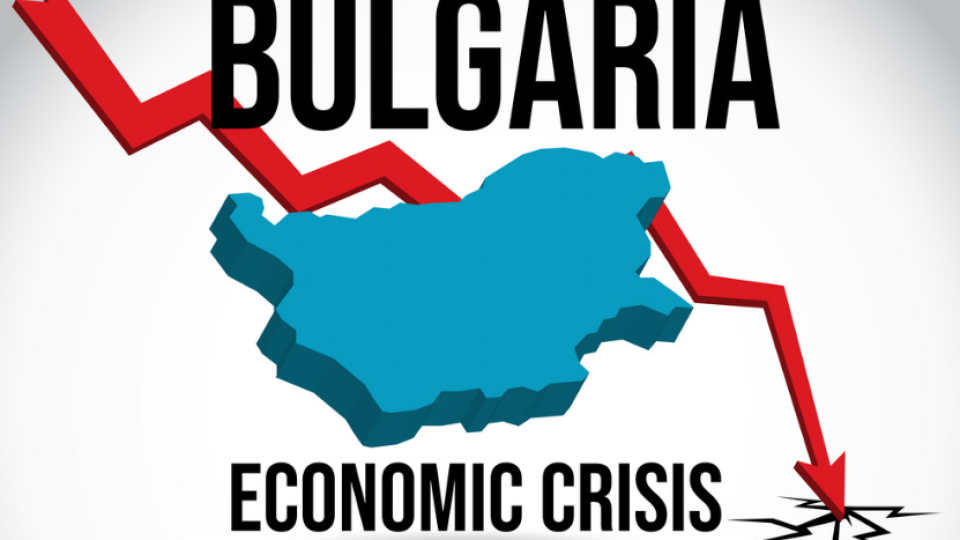
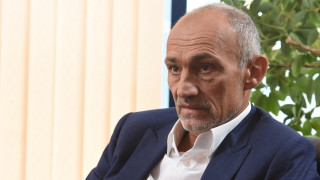
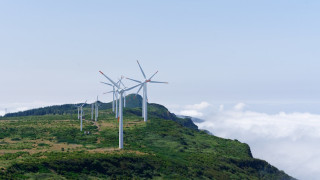
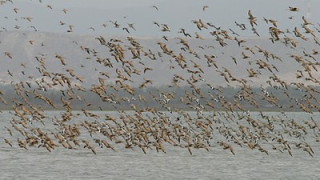
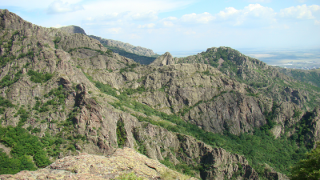
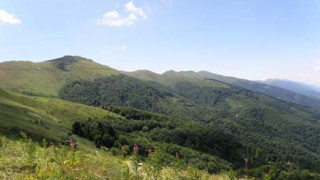
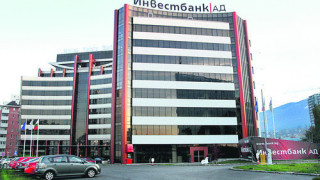

Leave a comment